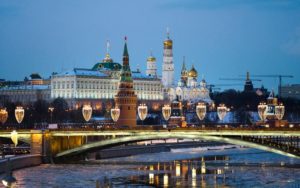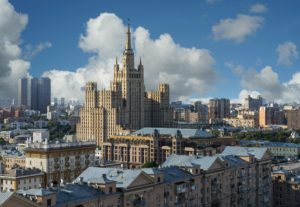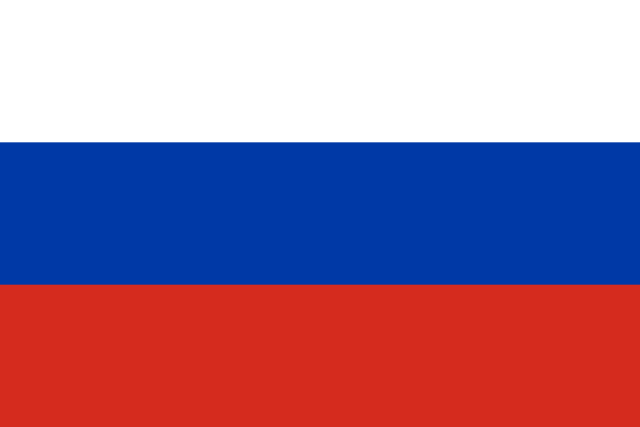Immigration to Canada Russia

Immigration to Canada Russia
The largest country in the world, Russia, spans Eastern Europe and Northern Asia. Russia has eleven time zones and borders sixteen sovereign countries. The population of the country is near 143,054,637 residents. Nevertheless, many of them apply for immigration to Canada through different streams. According to a recent census, more than 622,000 Russians live in Canada permanently.
Study Immigration to Canada from Russia
For future immigration to Canada from Russia many applicants decide to study in the country. When they graduate from at least a two-year study program at a Designated Learning Institution (DLI), they can apply for a post-graduation work permit (PGWP). It allows graduates to work in the country for up to three years since they need to get at least a year of work experience to apply for immigration to Canada from Russia through the PNP (Provincial Nominee Program) or the CEC (Canadian Experience Class).
To apply for PNP, citizens of Russia ought to have the job offer under NOC (National Occupation Classification) Skill Type 0, A or B. Skill Type 0 includes management jobs, Skill Level A contains positions that need a degree from a university, and Skill Level B includes technical jobs that require a college diploma or internship. For immigration to Canada from Russia under the CEC, international graduates must have a job that is included in NOC Skill Type 0, A or B.
Work Immigration to Canada from Russia
Residents of Russia also use their skills and qualifications for work immigration to Canada under the Temporary Foreign Worker Program (TFWP) and the International Mobility Program (IMP). Thus, they need to get at least a year of work experience in the country to qualify for PNP or CEC.
Since Canada has labour market shortages, the TFWP helps Canadian employers to hire workers from Russia. Nevertheless, employers are required to obtain a positive Labour Market Impact Assessment (LMIA). It proves that Canadians cannot fill the positions, and they must hire citizens of Russia.
There are circumstances when Canadian employers can hire residents of Russia without an LMIA under the International Mobility Program. However, residents of Russia need to get a work permit whether they apply for the TFWP or IMP. The government of Canada issues two types of work permits: employer-specific and open work permits. To get qualified for the Temporary Foreign Workers Program, residents of Russia ought to get an employer-specific work permit, while the IMP applicants can obtain an employer-specific or open work permit.
LMIA exemption categories that can apply for an open work permit under IMP include Canada World Youth Program applicants, refugees, professional athletes, applicants for open work permits for vulnerable workers, permanent residence or post-graduation work permit, also spouses and common-law partners of international students, spouses and common-law partners of international workers, family members of foreign representatives, and occupation-restricted open work permits for caregivers.
Family Sponsorship
Family sponsorship is the other way for immigration to Canada from Russia. Citizens and permanent residents of the country who are 18 years of age and older can apply for a family sponsorship program. Citizens of Russia who are spouses, conjugal partners, common-law partners, parents, dependent children, grandparents of the Canadian residents can use this program for immigration to Canada from Russia. A non-immediate family member, such as a sister, brother, niece, nephew, aunt or uncle, can be sponsored to the country, if citizens of Canada do not have closer family members and if they have legally adopted them.

Express Entry Programs: Federal Skilled Worker and Federal Skilled Trades
Citizens of Russia also apply for immigration to Canada under one of the Express Entry programs. The Federal Skilled Worker Program (FSWP) is the best way for immigration to Canada from Russia if applicants have not lived in the country. Residents of Russia have to meet the following criteria to be qualified for the program:
- The applicants must have at least one year of full-time foreign work experience in the last ten years. Moreover, the skilled job should be classified under the NOC Skill Type 0, A or B.
- They need to provide a Canadian or foreign educational credential, such as a certificate, diploma, or degree.
- Citizens of Russia should take the English (French) Language Proficiency Test and meet the Level 7 of the Canadian Language Benchmark (CLB).
For immigration to Canada under the FSWP, the citizens of Russia ought to get at least 67 out of 100 points on the Comprehensive Ranking System (CRS). The system evaluates the age, language proficiency, education, work experience, arranged employment, and adaptability of each applicant.
The skilled trades workers can apply for immigration to Canada from Russia under the Federal Skilled Trades Program (FSTP). The program aims to address labour shortages in trades occupations in the country. To be eligible for immigration to Canada under the FSTP, the citizens of Russia must meet several requirements:
- The applicants must have two years of full-time work experience in the previous five years in the skilled trades under NOC Skill Type B.
- The residents of Russia ought to get a valid job offer for at least one year from a Canadian employer or a certificate of qualification from a provincial or territorial administration.
- The applicants should take the English (French) Language Proficiency Test and get scores equivalent to CLB Level 4 for writing and reading, CLB Level 5 for listening and speaking.

Business Immigration to Canada from Russia
The applicants can also use their entrepreneurial and management experience for business immigration to Canada from Russia. If they wish to launch a business in Canada, the citizens of Russia can apply for the Start-Up Immigration Program. To be qualified for this program, the applicants must obtain a support letter from the investor, prepare a business plan, have no less than 13,213 CAD of personal funds, and meet the Level 5 of the CLB.
The other way for business immigration to Canada from Russia is the Self-Employed Immigration Program. If residents of Russia want to apply for this program, they need to meet several requirements. The applicants must be 20-50 years old, obtain a diploma degree, have no less than two years of work experience as a self-employed or at a world-class level in cultural or athletic activities, have 13,213 CAD of personal savings, and pass IELTS with a score of 5.5.
If residents of Russia want to live in a specific province or territory of Canada, except for Quebec, they can apply for immigration to Canada under the Provincial Entrepreneur Immigration Program. There are four main requirements of the program:
- The applicants must get at least three years of work experience as senior managers or business owners in the previous five years.
- The residents of Russia ought to take the English (French) Language Proficiency Test and meet CLB Level 4.
- They must have the intention to buy or launch a business and hire 1-2 full-time Canadian worker(s).
- The residents of Russia must have 600,000-1,500,000 CAD of personal savings and invest 200,000-1,000,000 CAD in a Canadian business.
If the residents of Russia want to live in Quebec, they can apply for immigration to Canada under one of the three Quebec Business Immigration Programs. If applicants have at least two years of business work experience in the previous five years, have 2,000,000 CAD of personal savings, and want to invest 1,200,000 CAD in Canada’s business for five years, they can apply for the Investor Program.
Citizens of Russia can also apply for immigration to Canada under the Quebec Entrepreneur Program if they have the skills and experience to run a business. The first stream of the program is offered for applicants who want to start a business in the province. The second stream is launched for citizens of Russia who wish to buy a working business in Quebec. To use this program for immigration to Canada from Russia, the applicants must have 900,000 CAD of personal funds. The last option for settling in Quebec is the Self-Employed Program. To qualify for this program, citizens of Russia must have 100,000 CAD of personal funds, get at least two years of self-employed experience, and register a start-up deposit of from 25,000 CAD to 50,000 CAD.
In case, if you need help with Immigration to Canada from Russia, please fill in application below or contact us directly.

